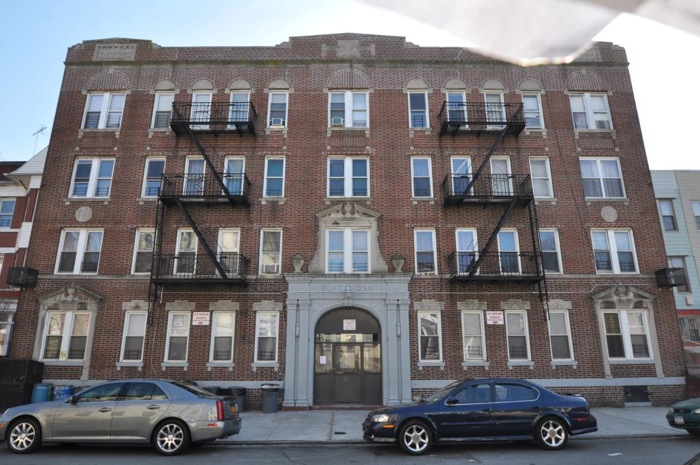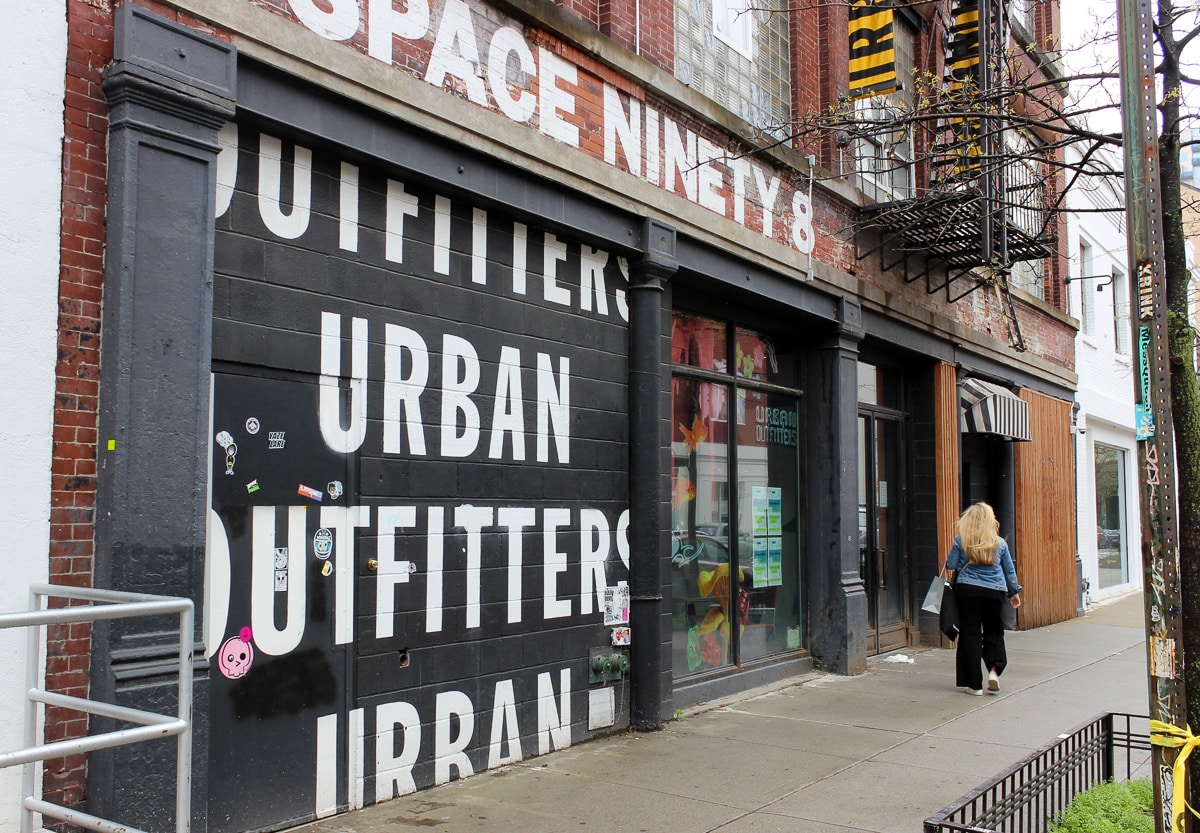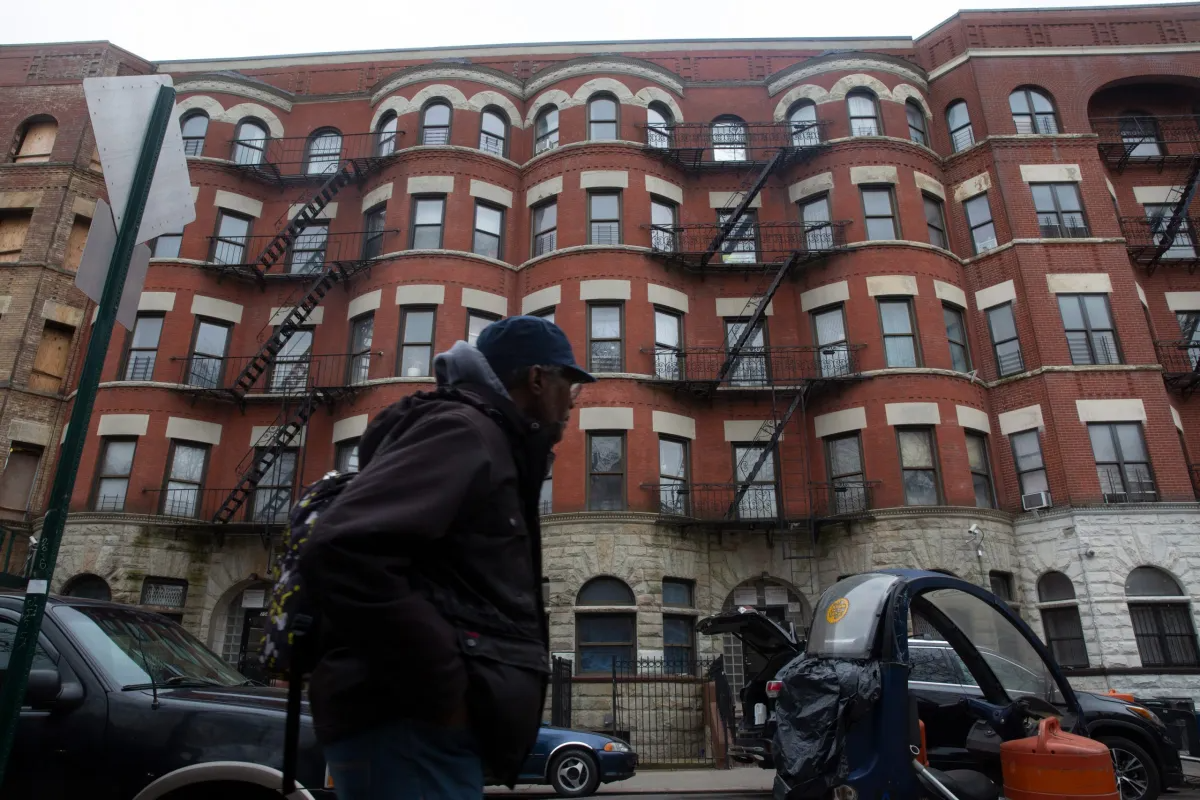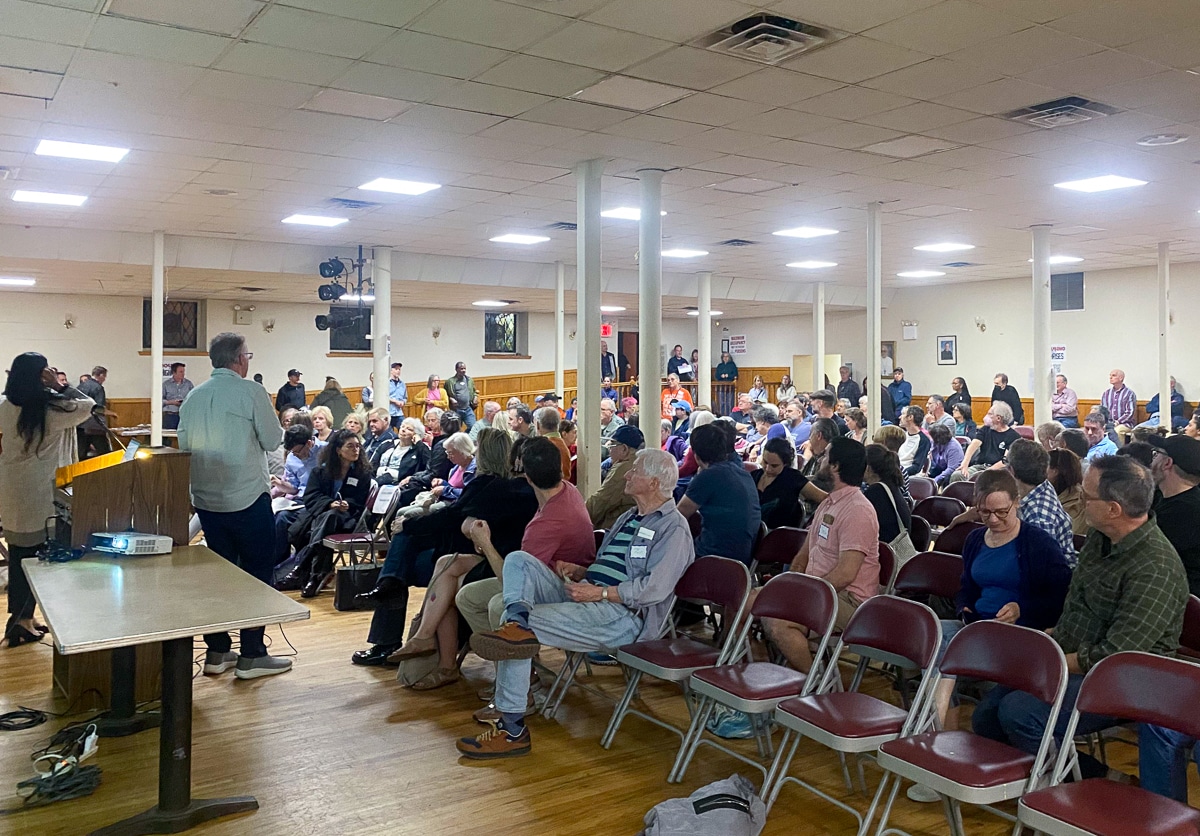Dixon Enters Commercial Property Market in Brooklyn With $40 Million Spree
Dixon is no longer buying only houses in Brooklyn but has moved into large apartment buildings in a huge way, snapping up at least $40,000,000 worth of commercial property in Brooklyn in one month, according to public records and sources. In June, working with partner Excelsior Equities, Dixon acquired 442-446 Decatur Street, pictured above, 263-265…

Dixon is no longer buying only houses in Brooklyn but has moved into large apartment buildings in a huge way, snapping up at least $40,000,000 worth of commercial property in Brooklyn in one month, according to public records and sources.
In June, working with partner Excelsior Equities, Dixon acquired 442-446 Decatur Street, pictured above, 263-265 Linden Street, 255-261 Linden Street, 770 St. Marks Avenue, 637 St. Marks Avenue, 24-30 Rogers Avenue, and 75 MacDonough Street, all in Bed Stuy, Bushwick and Crown Heights.
The change in strategy allows Dixon to rapidly increase the scale of its operations, to buy at a bigger discount, and will also give the company cash flow to service debt, a source who preferred to remain anonymous told us. “If they buy bigger properties, it gives them more scale and they can get a discount due to rent stabilization,” he said.
One of the sellers of the commercial properties in Crown Heights, John Weinberger, is in the final stages of selling all his Brooklyn properties, a total of more than 3,000 units, another source told us.
Dixon and partner Excelsior Equities acquired 442-446 Decatur Street for $5,900,000; 263-265 Linden Street for $6,750,000; 255-261 Linden Street for $6,750,000; and 75 MacDonough Street for $3,150,000. The Crown Heights properties at 770 St. Marks Avenue, 637 St. Marks Avenue, and 24-30 Rogers Avenue traded for $25,000,000, according to our sources and The Real Deal. That sale has not yet hit public records.
“We are very excited about Brooklyn, and our previous experience in Hudson County has found that a combination of prewar rent stabilized apartment blocks and one-to-four-family properties works really well,” Managing Director and Chief Executive Officer for Dixon Advisory USA Alan Dixon told us. “In Hudson Country we have 21 apartment buildings, primarily in West New York and Union City. In those buildings, we are partnered with Urban American and Excelsior Equities, who do the management on the properties.”
The Real Deal was the first to report on the purchase of the Crown Heights properties, with a story yesterday. We reported on the sale of 75 MacDonough last month.
Dixon Coverage [Brownstoner]
Photo by Christopher Bride for PropertyShark









I don’t think buyouts are bad merely because they don’t permit the tenant to rent or buy something comparable. If anything, I think a tenant should use a buyout as a means of taking the time to transition out of living in NYC. Considering the $150k example, budgeted carefully, the buyout might pay rent on a new place for a few years, with some to spare. Without having to pay rent, that time can be spent in skill development.
Our old building sold in June too. I half expected it to be part of this deal.
Most rent stabilized buildings are in dire need of major capital improvements; plumbing risers, all new electrical wiring, elevators, major masonry up-dating etc. etc. that it takes an owner/investor such as Dixon with deep private financing to get the job done.
The major capital improvement increases will be applied applied for, and gotten, because the buildings clearly needed the updates and the tenants will get priced out due to the increased rents that they then can no longer afford…so buy outs are actually kinder to tenants in most cases. Who wants to live through major renovations only to then discover that you cannot afford it and you have to move out with nothing?
Legitimate senior citizens and the disabled etc. can generally qualify for rent subsidies or it will be covered by the senior citizen rent increase exemptions, that come off the Real Estate tax bills etc..
The rest that cannot afford to pay for the improvements will get flushed out.
The buy outs are not meant to cover the cost of living expenses indefinitely. Rents and expenses will continue to go up, that is a fact of life. But a buyout can be enough for a down payment on an apartment that they can then continue to maintain. I have helped many people over the years in such situations and many are now far better off than if they had stayed as tenants indefinitely. I fail to see why people think that renting is a good long term financial plan or living arrangement. There are many apartments to be bought (co-ops) that cost much less to buy than to rent. Yes, maybe in neighborhoods a little “further out” but just as I cannot afford a penthouse with views of central park… Most people cannot afford to live where they would really want to live…. that is also a fact of life!
Rent Stabilization has far out-lived its sell by date and people wonder why the buildings are falling apart!!??
Serious question…Why are buyouts bad? It’s a contract between two consenting adults. It often seems like buyouts are mentioned in the same breath as illegal evictions. I personally have no problem with developers offering buyouts to people whether rent stabilized or otherwise…
If the buyout could have a contingency, in which the renter must be able to procure reasonable housing that suits the tenant’s needs, then it would be fair. The NYC rental market is too difficult to negotiate otherwise for most people even of above-average. Landlords know when they are taking advantage of a a tenant’s ignorance or naïveté, and tenants should have special protections where buyouts are concerned.
Meant above average income
I’m not ignoring that people can be taken advantage of, but that unfortunately is capitalism…Even between two sophisticated parties one side will get a better deal. Absent harrasment and other illegal tactics, I like to give people the benefit of the doubt that they are smart enough to make the best decision for themselves. Restricting a persons ability to enter into a contract because they “might” not work out well for them seems absured to me. In my opinion, a more fair solution would be to require LL to provide sometype of standard disclosure to the person being bought out. “PLEASE BE ADVISED THAT YOU ARE GIVING UP YOUR HOME IN EXCHANGE FOR A CHUNK OF CASH THAT 99% OF PEOPLE WILL NEVER RECIEIVE IN A ONE TIME PAYMENT AND THAT CASH MAY OR MAY NOT LAST YOU THE REST OF YOUR LIFE.” Sarcasism aside, that is how the stock market deals with the issue of large companies dealing with potentially unsophisticated participants. But in the end we shouldn’t assume people are dumb and over protect them. Especially in this case, where the real estate information needed to avoid not being taken advantage of is widely available with minimal effort needed to obtain it.